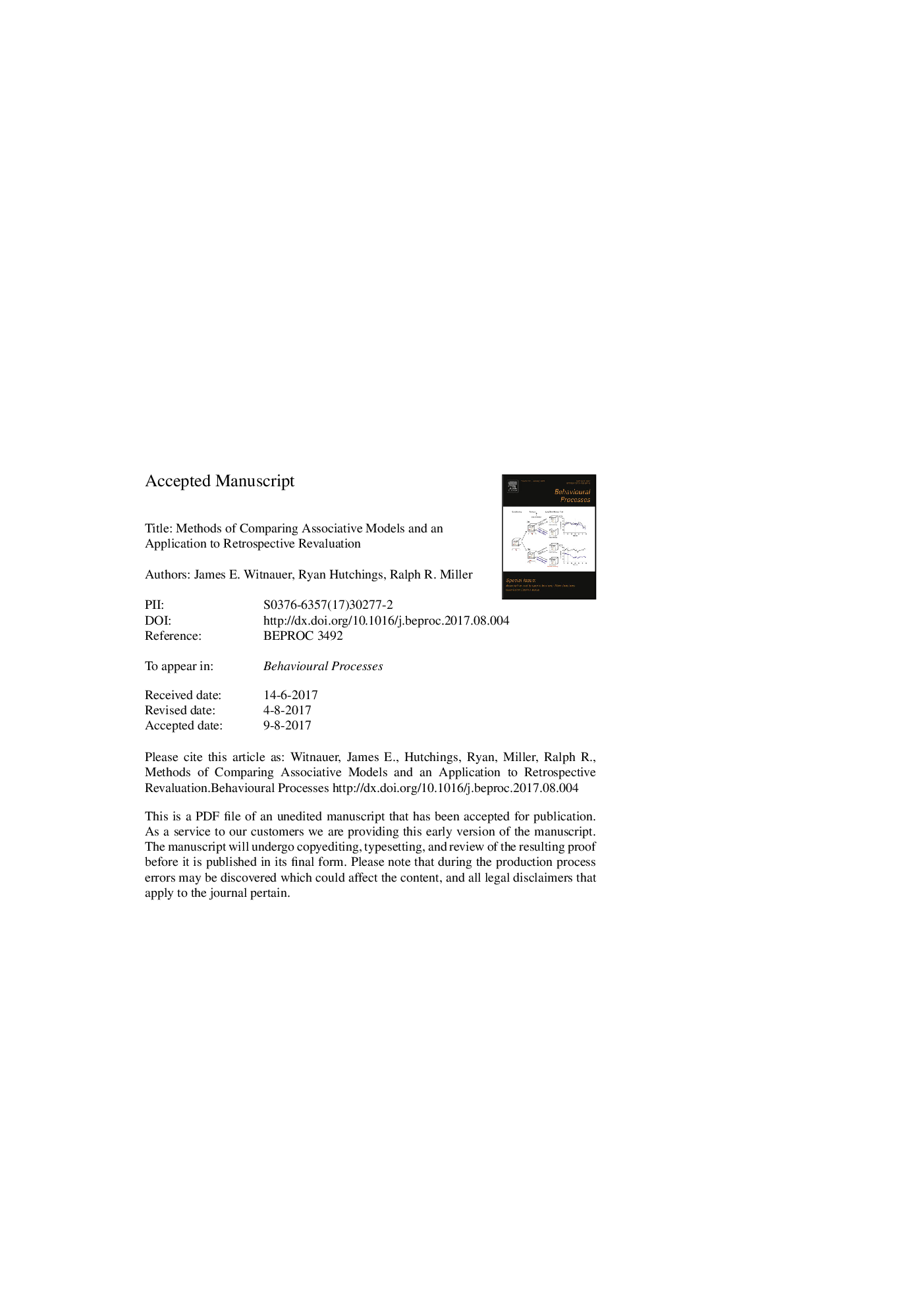| Article ID | Journal | Published Year | Pages | File Type |
|---|---|---|---|---|
| 5539715 | Behavioural Processes | 2017 | 55 Pages |
Abstract
Contemporary theories of associative learning are increasingly complex, which necessitates the use of computational methods to reveal predictions of these models. We argue that comparisons across multiple models in terms of goodness of fit to empirical data from experiments often reveal more about the actual mechanisms of learning and behavior than do simulations of only a single model. Such comparisons are best made when the values of free parameters are discovered through some optimization procedure based on the specific data being fit (e.g., hill climbing), so that the comparisons hinge on the psychological mechanisms assumed by each model rather than being biased by using parameters that differ in quality across models with respect to the data being fit. Statistics like the Bayesian information criterion facilitate comparisons among models that have different numbers of free parameters. These issues are examined using retrospective revaluation data.
Keywords
Related Topics
Life Sciences
Agricultural and Biological Sciences
Animal Science and Zoology
Authors
James E. Witnauer, Ryan Hutchings, Ralph R. Miller,
